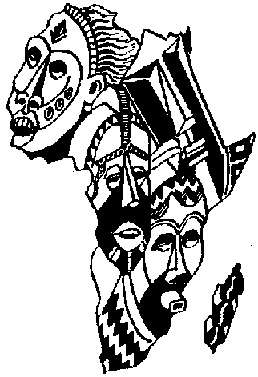Africa Struggles with Climate and Debt Crises
Unsustainably high debt obligations complicate the African continent’s efforts to confront climate change and promote economic and social development.
Unsustainably high debt obligations complicate the African continent’s efforts to confront climate change and promote economic and social development. The following article was published in the November-December 2023 issue of NewsNotes.
In recent months, church and political leaders have expressed deep concern over the high foreign debt loads of most African nations and their impact on responding to climate change. In October, just prior to the annual meetings of the World Bank, IMF and G20 in Marrakech, Morocco, IMF Managing Director Kristalina Georgieva said that successive shocks since 2020 have cost the global economy $3.7 trillion and that poor countries have been hit the hardest. She added that more than half of low-income countries and one-fifth of emerging economies remain at high risk of debt crisis.
Eric LeCompte, Executive Director of Jubilee USA Network, commented that “at least 60 countries are in debt crisis. World leaders can help solve the debt crisis or continue to do too little, too late.” LeCompte further stated that: “Special Drawing Rights – an emergency currency that the IMF issued in 2021 during the pandemic – played a critical role in addressing the pandemic and rising global poverty. Our world needs more aid like this as soon as possible.”
The IMF called for preemptive debt restructurings in countries with high debt risks. An entire chapter of its financial stability report focused on the role the financial sector should play in meeting climate investment needs. LeCompte stated that developing countries will need $2 trillion per year by 2030 in climate investments but that most of this will come from private finance with high interest rates. “This means that countries will have higher debt payments that will lead to even more debt crises.”
Church leaders in Africa have also expressed serious concerns about the continent’s debt crisis. In August, bishops, priests and Catholic laity with expertise from 11 countries met to discuss the debt crisis and Kenyan Bishop John Oballa of Ngong issued a statement. “Today African countries owe collectively more than $1.1 trillion in external debt and 25 of them are in a deep debt crisis. (Out of 53 countries in Africa) Debt financing and inordinate interest rates incurred in servicing debt affects social sector spending to achieve development and climate goals.”
The statement also said that Africa owes three times as much to firms in the West than to Chinese firms and that Western firms charge higher interest than those of China.
These leaders recommended solutions, such as reducing or refinancing debt, spreading payments over longer periods, and reducing interest rates on loans. They also called on major lenders to “enact laws that require them to participate in debt relief.”
In October, corresponding to the IMF-G20 meeting, the Symposium of Episcopal Conferences of Africa and Madagascar (SECAM) met and noted that, as a result of not only debt but pandemic and Russia’s war against Ukraine, there are now over 600 million people in Africa living in poverty and 250 million who go to bed hungry.
The SECAM statement noted that one of the major complexities is the multiplicity of creditors to African nations and that over 45% of debt is owed to private creditors, who charge high interest rates. In addition to what the church leaders called for in August, SECAM added that responsible lending should include debt contract authorization and disclosure safeguards, and debt reduction clauses that trigger automatically when debtor nations suffer national disasters or other shocks. They noted that Africa stands out as the most climate-vulnerable region.
Complementing church statements, the international NGO Action Aid issued a powerful critique of IMF lending practices with its report, “Fifty Years of Failure: The International Monetary Fund, Debt and Austerity in Africa.” The report strongly criticizes IMF persistence in demanding austerity by governments, prioritizing loan repayments over spending on health, education and climate action. It further criticized IMF’s myopic focus on Gross Domestic Product (GDP) to measure progress, rather than the more illustrative Human Development Index.
Regarding climate action, Action Aid stated: “The suggestion that climate finance from the Global North should be channeled to the Global South in loans, to countries already facing a debt crisis, is absurd and would accelerate the climate crisis. Climate-vulnerable countries in Africa must earn foreign currency quickly, which means in the present global economy investing in fossil fuels and industrial agriculture, even where countries know that a more sustainable path might be found through investing in renewables and agroecology.”
“Rescheduling debt is no longer enough,” Action Aid says. “If the IMF wants to play a constructive role on climate finance, it should be brokering deals for collective debt renegotiation or debt cancellation.”
Action Aid joined with the bishops and the IMF in calling for greater financial assistance from financial institutions which give aid and loans at low rates.

